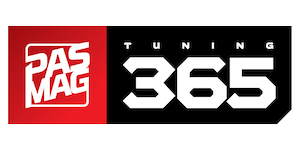As Mike Essa stood atop the final podium of the 2013 Formula D season and accepted his trophy as the season champion, he made history in more ways than one. Essa is the eighth different champion in Formula D’s 10 year existence, and overcame a blown motor in the final event and a hard charge from Chris Forsberg to claim the title by a mere 17.5 points. In doing so, Essa became the first driver to earn their license via Formula D’s ProAm system to win a championship, climbing the ladder all the way from competing on a local level to collecting the biggest hardware in the series in six short years.

Essa built his first FC RX-7 as a personal toy and outlet to get away from the grind of fabricating and working on Porsche Cup cars. A simple Chevy LS6 powerplant from a 2003 Z06 Corvette powered the FC, while all the fabrication work was done by Essa in his spare time. After a few test-and-tune days, Essa began to enter local ProAm drifting competitions as a means to improve his drifting skill, not just to compete for the purpose of earning a Formula D license. A successful 2008 ProAm season via the Just Drift series in Southern California led to an invite to the special ProAm invitational event at the Red Bull Drifting World Championships that November. Essa finished third and earned a professional license.
The 2009 Formula D rookie class was a strong one, including such names as Matt Waldin, Matt Powers, Dennis Mertzanis, Brian Wilkerson, and eventual rookie of the year Eric O’Sullivan. Essa made a Top Eight in Las Vegas and qualified for Top 32 tandem in five of the six events he entered, missing the New Jersey round due to a lack of funding. Essa finished the season 24th overall, with title sponsorship support from DTC Performance, a local tire shop in Socal, and Maxxis tires.
In 2010, Essa moved to a new chassis, an E92 BMW he built himself to promote the GSR Autosports shop he had just opened with a business partner. At the time, little research had been conducted on the twin-turbo 3.0L motor from the 335i, and other options didn’t have the torque needed for drifting, so Essa made an unconventional choice and selected a S85 V10 motor out of the M5. Many compared the sound of the motor to an F1 car, and the car definitely turned heads in the pits. Essa found success early, hitting a career-best top-4 finish in Atlanta that would stand as his career best entering the 2013 season. He struggled to get out of the Top 32 round the rest of the season, however, finishing 30th overall. While the car was torquey and sounded awesome, it hit a horsepower limit that would require substantial investment to overcome, and power gains were harder to find due to its weight. Essa finished the 2010 season by entering the first-ever Gymkhana Grid event at Irwindale Speedway, but the weight of the car made it relatively uncompetitive outside of the burnout competition.
 |
 |
The 2011 season saw yet another new chassis, this time a BMW Z4 Roadster mated to a lightweight and powerful S54 6-cylinder motor that has a plethora of existing research about how to make reliable horsepower. Essa started the season by earning a Top Eight finish in the final hurrah for the E92 chassis at a demo in Abu Dhabi before piloting the Z4 to a Top Eight finish in Las Vegas and a 17th place finish in the championship. The new chassis proved to have more power in a lighter chassis to meet the rising level of competition in Formula D at the time.
In 2012, Essa added a hardtop to the Z4 in an attempt to keep smoke out of the cabin. Returning to Atlanta, Essa earned a Q1 qualifying position and a Top Eight overall finish, proving the car was plenty competitive for the series. Essa duplicated that result with another Top Eight finish in Vegas to earn 12th place in the final championship standings.
Entering the 2013 season, Essa introduced his third chassis in four years and was merely looking to better his 12th place finish and claim his first Formula D podium. However, after a fourth-place result in the second event of the season in Atlanta (matching his career-best finish from 2010), a championship wasn’t even on the radar. But with three podiums in the next four events, including a first career event win in Palm Beach and a second event win in Texas, winning the title became more attainable. Regardless, the goal for the team remained to improve the chassis and build the team for a future stab at the championship.
Approaching the final event of the season, Essa held a healthy 15.5 point lead over Forsberg and held his destiny in his own hands. As the leader in the points, Essa had the first qualifying run of the day on Friday, and set the standard with a 96.6 point run which would stand up as the top position. Forsberg could only muster an 89.8 point run, which left him in the 8th qualifying position and netted another nine points for Forsberg to overcome. A simple Top 32 tandem win would nearly guarantee the championship for Essa. Forsberg would have to finish either first or second to snatch the title back. However, disaster struck on the first run of the Top 32 battle for Essa in his run with Luke Pakula after a catastrophic engine failure looked to end his day and possibly his championship hopes.
 |
 |
In an incredible twist of fate, Essa’s opponent also experienced mechanical failure and was unable to continue. Since Essa was the higher qualifier, he was given the round win. Forsberg would eventually lose to defending champion Daigo Saito in the Top Eight, ending his day and championship hopes, and giving it to Essa in the process. This was the first championship for Yokohama Tire since its return to Formula D last season, and the second consecutive won by a turbocharged car after Saito’s victory in 2012. “I really wasn’t expecting the championship this season” said Essa after the win. “I was just hoping to get my first career podium, and build on last year’s result. The team worked hard, and I couldn’t be happier with the result.”
For 2014, Essa plans to keep the same chassis and work on a more robust motor program. The expired engine is the same block that was in the previous car during the 2012 season and had a substantial amount of time on it. As a driver who started on the outside in ProAm, the rise to the top has been a slow but methodical one, and has given hope to many current and future ProAm drivers that a championship is not beyond the realm of possibility.
Related Articles
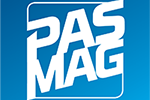 Formula Drift Reshapes Pro-Am Affiliate Program for 2026
Formula Drift Reshapes Pro-Am Affiliate Program for 2026
 Formula DRIFT Announces Major 2026 Competition Format Changes for 2026 Season
Formula DRIFT Announces Major 2026 Competition Format Changes for 2026 Season
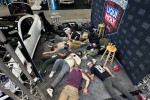 PASMAG Editors’ Top 5 SEMA Builds of 2025
PASMAG Editors’ Top 5 SEMA Builds of 2025
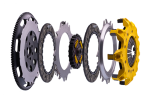 ACT Releases SFI-Approved 225mm Mod-Twin for 1989-1992 Nissan Skyline GT-R (R32)
ACT Releases SFI-Approved 225mm Mod-Twin for 1989-1992 Nissan Skyline GT-R (R32)
 MID Wheels by RAYS Introduces the All-New D8 Off-Road Wheel
MID Wheels by RAYS Introduces the All-New D8 Off-Road Wheel
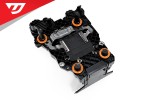 Unitronic TCU Tuning for the 8Y Audi RS3
Unitronic TCU Tuning for the 8Y Audi RS3




